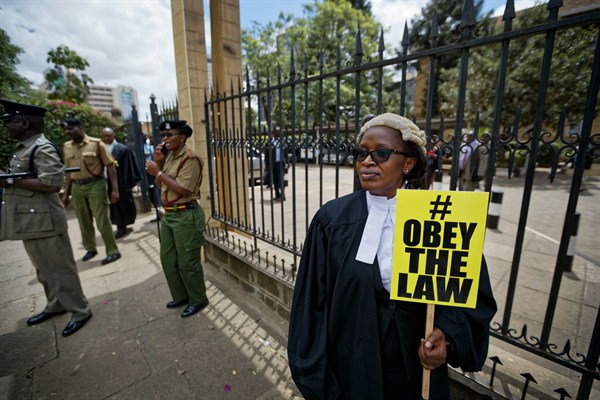In a historic ruling earlier this month, Malawi’s Constitutional Court overturned President Peter Mutharika’s victory in the country’s presidential election last May. The court criticized the Malawi Electoral Commission for failing to organize a credible vote; in some cases, ballots had reportedly been altered with correction fluid. The presiding judges also ruled that the country’s first-past-the post electoral system—which had allowed Mutharika to secure a second term with a plurality of only 38.5 percent of the vote—was unconstitutional, and ordered new elections to be held within 150 days. The following week, the court rejected an appeal by Mutharika and the electoral commission to temporarily suspend its ruling.
The Constitutional Court’s verdict was only the second time in history that an African high court had canceled the result of a presidential election. Kenya’s Supreme Court was the first to do so in September 2017. This does not mean that complaints are uncommon; opposition parties across the continent frequently cry foul and lodge legal challenges to election results. In most cases, however, their complaints are dismissed or rejected by the courts.
The verdict in Malawi indicates that this is changing in Africa, albeit slowly and unevenly. Data from the Varieties of Democracy project, which uses assessments by multiple experts in each African country to evaluate how often high court decisions in politically salient cases reflect the wishes of the government, show that African high courts became more independent on average in the period between 1990 and 2017. The Malawian Constitutional Court’s ruling should thus be seen as part of an ongoing trend rather than a turnaround.

